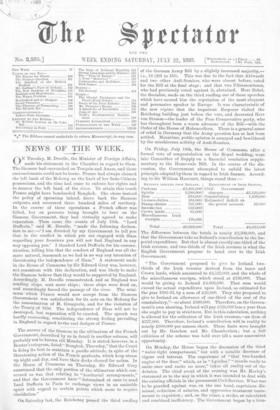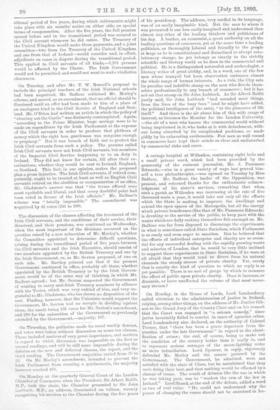On Monday, the House began the discussion of the third
" water-tight compartment," but with a notable decrease of vigour and interest. The experience of "that two-handed engine at the door," which, as in " Lycidas," "stands ready to smite once and smite no more," takes all reality out of the debates. The chief event of the evening was Mr. Morley's statement as to the way in which it was intended to deal with the existing officials in the permanent Civil Service. What was to be guarded against was, on the one hand, capricious dis- missal, reduction of salaries, and oppressive treatment tanta- mount to expulsion ; and, on the other, a strike, or calculated and combined inefficiency. The Government began by a Olin- sitional period of five years, during which retirements might take place with six months' notice on either side, on special terms of compensation. After the five years, the full pension earned before and in the transitional period was secured to the Civil servant whenever he did retire. The Treasury of the United Kingdom would make these payments, and a joint committee—two from the Treasury of the United Kingdom and one from that of Ireland—would consider and, in effect, adjudicate on cases in dispute during the transitional period. This applied to Civil servants of all kinds,-1,201 persons would be affected by the Clause. The Irish Government would not be permitted and would not want to make vindictive clearances.



































